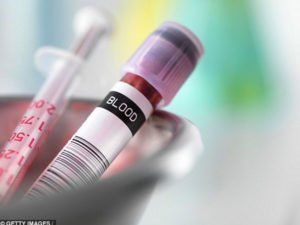Warrantless Blood Draws
DuMond Disclosure Volume 5 | By Alissa Warren | August 25, 2017
When can law enforcement take my blood?
The right for the Police to request or require that you give any sample: blood, breath, or urine, is governed by the United States Constitution, specifically the Fourth Amendment, which outlines your rights in situations involving a search or seizure of your property or person, and the Fourteenth Amendment, which applies those same rights to actions by state governments. Before the police may take your blood, they must have either: 1) Your express consent; 2) A warrant; 3) A valid exception or exclusion to the warrant requirement.
Why is blood such a big deal?
Blood sample collection has been determined by the United States Supreme Court to be an invasive procedure. McNeely (2013) 133 S.Ct. 1552; Birchfield (2016) 136 S.Ct. 2160. As opposed to breath or even urine testing, both of which involve no invasion to the body, blood testing requires forced entry into a vein to obtain the sample, and the Supreme Court has thus held that it is subject to more constitutional protections than breath or urine testing, especially when all tests are testing for the same thing. Thus, police must have a warrant, or obtain your express permission, in order to take a sample of your blood for testing purposes, such as for blood alcohol content (BAC) or drug metabolites. However, there are certain exclusions to this requirement, under which police may still obtain a warrantless blood sample.
One of these exclusions is where an individual is receiving treatment at a hospital or other medical facility, and blood is collected in the process of treating or diagnosing the patient. In other words, if hospital staff are already accessing your blood for a medical purpose, police are then allowed to ask for an additional sample of that blood for their own testing purposes. Even if you are unconscious and therefore unable to “expressly consent” to treatment, if a “reasonable person” would consent to the treatment (for example, if it saves your life, or conveys some other substantial treatment benefit) then the collection of blood is still lawful without a warrant. Courts have held a very low standard on this. For example, a cut lip will bleed “profusely” despite very little actual blood loss. And because it is on the face, a “reasonable person” would ostensibly desire treatment [stiches] in order to prevent scarring. Therefore, a blood draw in such a case, without other evidence to the contrary, has been held to be lawful absent a warrant.
Do I have any defense if the police took my blood without a warrant?
Even if police have collected your blood and claim it was pursuant to a valid medically-necessary blood collection at a hospital or other treatment facility, you may still have a valid defense. Your attorney can subpoena the hospital record to verify whether the blood obtained was, in fact, collected during an already-in-process medical blood collection. Timing is key. If police collected your blood at 8:00 and claim it was a lawful warrantless seizure because your blood was already being collected in the course of your treatment, the record may refute this claim if hospital staff did not issue any bloodwork orders until 8:20, and the collection by hospital staff occurred at 8:25. Additionally, our firm has recently discovered that the hospital record released to you, the patient, does not contain all of the information necessary to determine such a timeline. The only way to obtain the full medical record is by subpoena. For this reason, if you have been charged with an offense and believe that a claimed medical blood draw may have in fact been an unlawful search and seizure in violation of your Fourth Amendment rights, you should contact DuMond Law as soon as possible in your court process. Without the full medical record, judges may make assumptions as to what likely occurred in your treatment. The only way to overcome a law enforcement officer who claims his warrantless blood draw was lawful is to refute it with documented treatment evidence.
So if they took my blood and didn’t have a warrant, I’m golden?
There may be other factors to consider. Any time law enforcement obtains your blood without a warrant or your express permission, that collection may be challenged; however, the Court will look at the complete picture, not just one factor. Did they have time to obtain a warrant, or would a judge declare the situation was so extreme as to make a warrant unnecessarily time-prohibitive or burdensome? Today, Police have computers in their vehicles and body microphones, therefore dispatch is almost always readily available, and thus it may be difficult for police to prove an exigency which rises to the level of allowing a warrantless search and seizure such as a blood draw. Was the officer certified in alternative testing procedures? Did he have that equipment available? If an officer is certified to administer a breath test, and a breathalyzer was in his vehicle, he will have a more difficult time proving to the court that your blood was necessary to his investigation. If the same information can be obtained from two different tests, the least invasive test is presumed to be sufficient, absent extraordinary circumstances.
These are just a few of the possible defenses available. Our Constitution protects individual citizens in such cases for the very reason that if law enforcement officers must resort to breaking Constitutional law in order to enforce statutory law, the justice system is no longer a system at all. At DuMond Law, we can review the facts of your case and determine your best option for a successful outcome.


